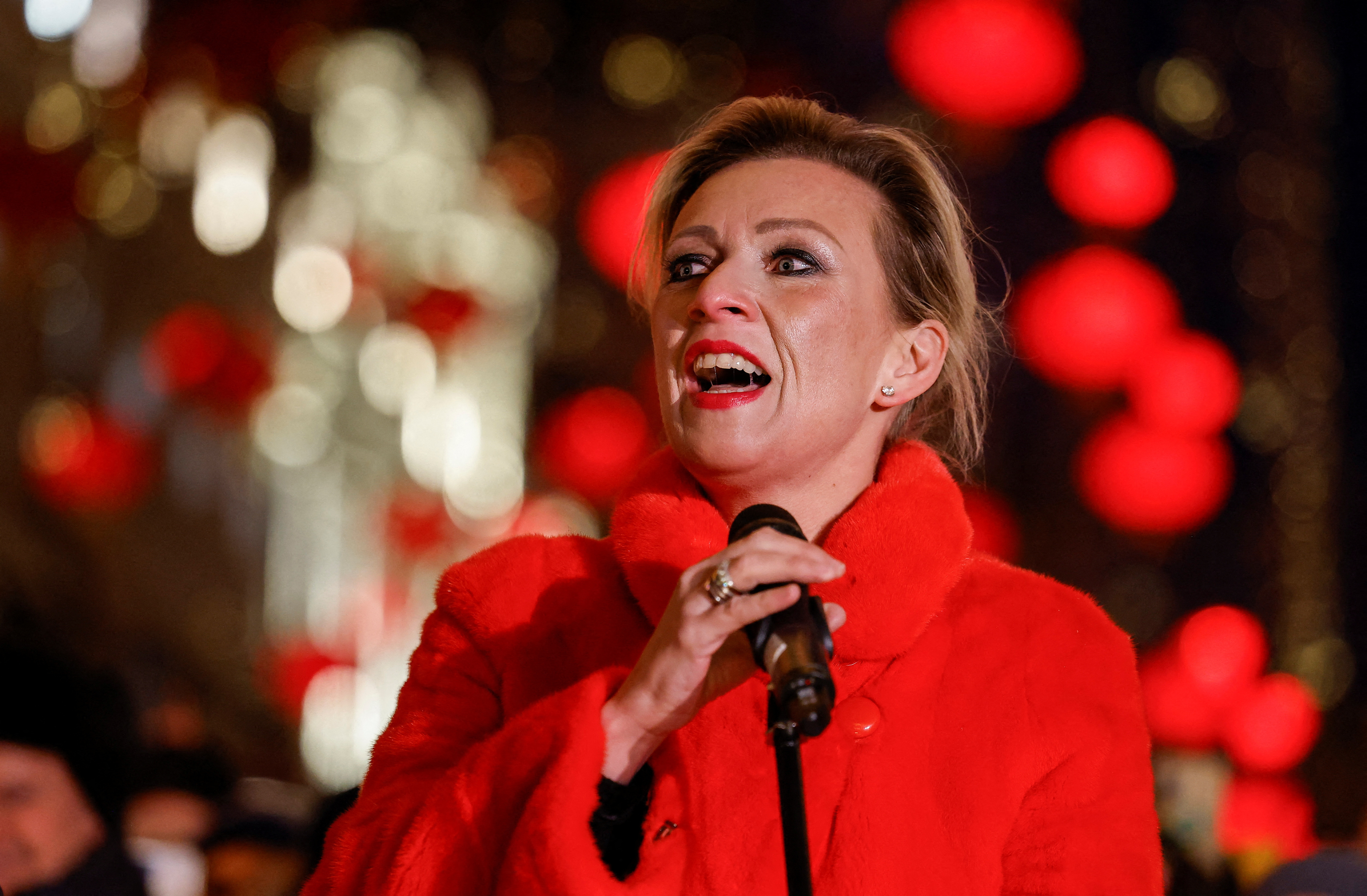Russia responds icily to U.S. hint on arms control talks with Moscow and Beijing

Spokeswoman of Russia's Foreign Ministry Maria Zakharova speaks during the opening ceremony of the Chinese Lunar New Year's Eve festival in Moscow, Russia February 9, 2024. REUTERS/Maxim Shemetov/File Photo Purchase Licensing Rights
MOSCOW, March 20 (Reuters) - Russia said on Wednesday that it would only discuss nuclear arms control with the United States as part of a broader debate and cautioned Washington that its use of commercial satellite companies to spy made such objects legitimate targets.
Russia and the United States, by far the biggest nuclear powers, have both expressed regret about the disintegration of the tangle of arms control treaties which sought to slow the Cold War arms race and reduce the risk of nuclear war.
U.S. Ambassador to the United Nations Linda Thomas-Greenfield said on March 18 that the United States was willing to engage in bilateral arms control discussions with Russia and China without preconditions.
"We are being offered to conduct dialogue exclusively on the terms of the United States and only on those issues which interest Washington," Russian Foreign Ministry spokeswoman Maria Zakharova said when asked about Thomas-Greenfield's remarks.
"We are ready to discuss security and stability issues only in a single package, with an emphasis on those aspects that directly affect the security interests of our country."
President Vladimir Putin has said there could be no strategic talks with Washington without a broader discussion of Russia's security, shorthand for Moscow's concerns about NATO enlargement and Western support for Ukraine.
The war in Ukraine has triggered the deepest crisis in Russia's relations with the West since the 1962 Cuban Missile Crisis, after which the United States and the Soviet Union sought to slow the arms race. That led to a series of arms control agreements giving each side greater understanding of their foe's arsenal and capability.
Russia and the United States are modernising both their conventional and nuclear forces while China is seeking to orient its nuclear posture for strategic rivalry with the United States.
SATELLITES
Russia also said it knew about U.S. intelligence efforts to use commercial satellite operators such as SpaceX and cautioned that such moves made their satellites legitimate targets.
Reuters reported this month that SpaceX is building a network of hundreds of spy satellites under a classified contract with a U.S. intelligence agency, demonstrating deepening ties between Elon Musk's space company and national security agencies.
"We are aware of Washington's efforts to attract the private sector to serve its military space ambitions," Zakharova told reporters.
Such systems "become a legitimate target for retaliatory measures, including military ones," she said.
Putin said last month Russia was against the deployment of nuclear weapons in space, and his defence minister flatly denied U.S. claims that Russia was developing a nuclear capability for space.
Sign up here.
Writing by Felix Light; editing by Guy Faulconbridge, Mark Trevelyan and Ros Russell
Our Standards: The Thomson Reuters Trust Principles.
